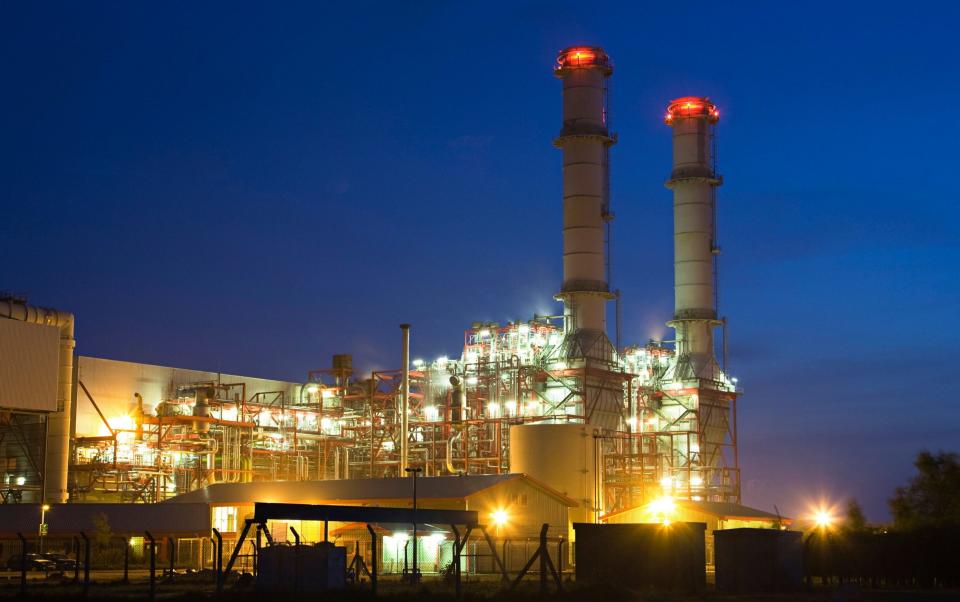Energy bosses race to resurrect gas-fired power stations by Christmas

Energy bosses are vying to bring two mothballed gas-fired power stations back into action as power prices soar.
The Severn Power station in South Wales and Sutton Bridge in Lincolnshire were run by Calon Energy, which went into administration in June 2020.
The two stations were taken out of the generation market but remained under the control of directors Jeff Holder and Scott Magie.
The pair believe the time is now right to get the plants back into the market, with record high gas and power prices amid squeezed supplies.
“We believe it can be economically viable,” said Holder. “Although the price of gas is high the price of power is also high – it’s the difference between the two that matters.”
The pair say they have been “urgently” trying to work with the Government and National Grid to bring them back into the market – although no conversations have yet been had.
They say workers at the plants are making a “herculean effort” and could have the plants back online by Christmas.
The stations could provide 1.7GW of capacity at a time when supplies are stretched due to factors such as maintenance of nuclear plants and a shutdown of coal plants.
National Grid is forecasting a winter margin – the buffer between supply and peak demand – of 3.9GW, or 6.6pc, with a range of between 4.2pc and 8pc.
That would be the weakest buffer since 2016 and lower than it predicted in July, after a fire knocked out a cable importing power to Britain from France, putting Britain perilously close to an energy crisis.
Gas-fired power stations supply about 40pc of UK electricity, an amount that varies day by day depending on other sources such as wind power.
On Friday (October 15) combined cycle gas turbines similar to the Severn Power and Sutton Bridge plants were generating 54.3pc of British power, with coal another 2.8pc.
National Grid is working towards being able to run the system without using gas-fired power for at least a couple of hours at a time by 2025, under efforts to decarbonise.
But gas is none the less likely to have a role in the system for years, even beyond the new 2035 government target date for decarbonising electricity.
Mr Holder and Mr Magie believe their plants could return to the market for the long-term despite the possibility that current high prices are short term.
A global squeeze on gas supplies has led to a six-fold increase in the gas price in Britain and four-fold increase in the power price.
With low wind speeds at the start of September also putting pressure on the system, some generators were fetching prices as high as £4,000 per MwH in the balancing market.
High gas prices around the world have led to a resurgence of coal in power stations, reversing years of coal-to-gas switching.
Coal prices have rocketed to a record high after a cold snap in China added to huge demand for the dirty fuel as power-rationed factories battle to keep production lines online.
China’s energy crisis was worsened by expectations that a chill will stoke demand for electricity to heat homes with prices surging in their biggest weekly rise on record.
Soaring costs for the polluting energy source came amid reports that Chinese president Xi Jinping will miss the Cop26 climate summit in Glasgow next month.
Coal futures have jumped almost 40pc this week as power shortages and high prices threaten to cripple Chinese factories.
Prices for Zhengzhou thermal coal futures are up more than 200pc this year and have reached a record high of just under 1,700 Chinese yuan (£192) per tonne.

 Yahoo Finance
Yahoo Finance 